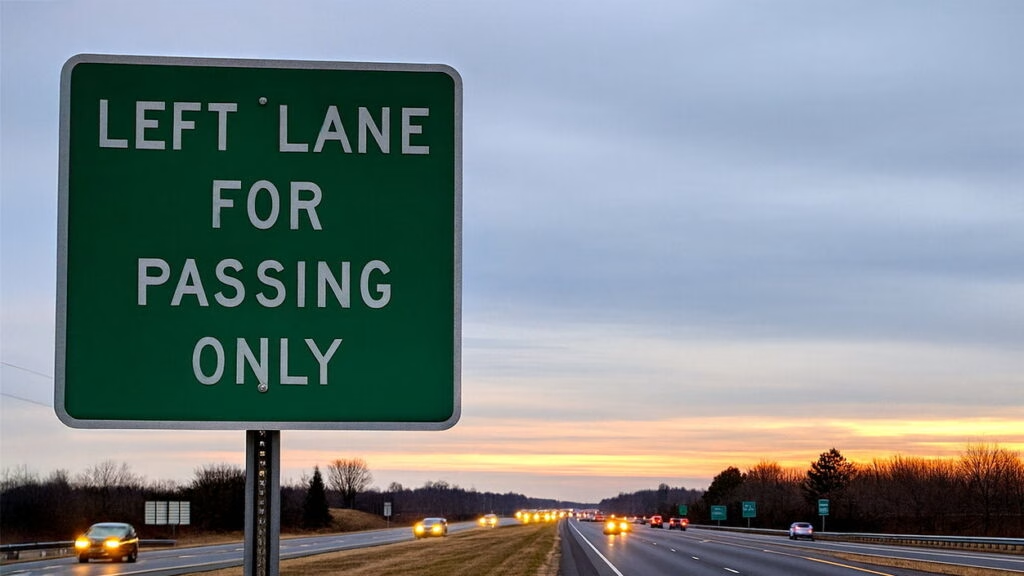What’s Actually Changing for Louisiana Drivers Who Linger in the Left Lane?
Louisiana’s highways just got a lot less forgiving for those who treat the left lane like their own personal cruise zone. As of August 1, a new law—Act 24 (SB 11)—cracks down on “left-lane campers,” those drivers who hang out in the passing lane, sometimes even below the speed limit, and gum up the flow for everyone else. The penalties? They’re no joke. First offense: $150 fine. Get caught again, and it jumps to $250. But here’s where it gets real—rack up three or more offenses in a year, and you could be looking at a $350 fine or even up to 30 days in jail.
The reasoning is simple: the left lane is for overtaking, not for sightseeing. When drivers dawdle there, it forces others to pass on the right, which studies have shown increases the risk of collisions and traffic snarls. According to the National Highway Traffic Safety Administration, improper lane usage is a factor in thousands of crashes annually. Louisiana’s lawmakers are betting that stiffer penalties will nudge drivers back into the right lane unless they’re actively passing.
Why Are Some Lawmakers and Drivers Pushing Back?
Not everyone’s thrilled about this new approach. While Senator Jay Luneau, who sponsored the bill, points out that slow left-lane drivers are a weekly headache for most motorists, some see the law as overkill. Representative Mike Bayham voiced concerns that this could become just another reason for police to pull people over and hand out tickets. There’s also the worry that enforcement could be inconsistent or even unfair, especially in rural areas where traffic patterns are different.
But there’s a flip side. Many traffic safety experts argue that clear, enforceable lane discipline is key to reducing road rage and accidents. In fact, several other states have similar laws, and early data suggests they can help smooth out traffic flow and reduce risky passing maneuvers. The debate boils down to whether the threat of jail time is the right lever to pull—or if it’s a step too far.
How Does This Law Compare to Other States’ Approaches?
Louisiana isn’t alone in targeting left-lane loafers. Connecticut, for example, is rolling out its own tough left-lane law next year, and states like Texas and Arkansas already have similar rules on the books. What sets Louisiana apart is the escalation to potential jail time for repeat offenders—a move that’s rare but not entirely unprecedented. In most states, fines are the norm, with jail reserved for only the most egregious or repeat violations.
The trend is clear, though: as highways get busier and tempers get shorter, more states are looking for ways to keep the passing lane clear for, well, passing. It’s a shift toward European-style lane discipline, where the left lane is sacred ground for overtaking and nothing else.
Are There Other New Traffic Laws Louisiana Drivers Should Know About?
Absolutely. The left-lane crackdown is just one piece of a broader push to tighten up road safety in Louisiana. Here’s what else is changing:
– Uninsured drivers now face much steeper consequences. If you’re caught without insurance and get into a crash—even if it’s not your fault—you could be on the hook for up to $100,000 in damages. The goal? Discourage uninsured driving and protect those who follow the rules.
– Hit-and-run convictions now come with mandatory minimum jail sentences, sending a clear message that fleeing the scene won’t be tolerated.
– Window tint laws have gotten stricter, dropping the legal limit for light blockage from 40 percent to 25 percent, aligning with neighboring states.
– Handheld phone use is now banned unless you’re using a hands-free device, mirroring a growing national trend aimed at curbing distracted driving.
What’s the Real Impact for Everyday Drivers?
For most folks, these changes are a wake-up call to brush up on the rules of the road. If you’re used to cruising in the left lane, it’s time to break the habit. Not just because of the fines or the threat of jail, but because it genuinely makes the roads safer and less stressful for everyone. And if you’re driving uninsured or with illegal tint, you’ll want to get that sorted—fast.
There’s also a cultural shift underway. Laws like these nudge drivers to be more considerate, to think about how their habits affect everyone else on the road. It’s not just about avoiding a ticket; it’s about making the daily commute a little less maddening.
The big takeaway? Smarter driving isn’t about perfection—it’s about making small, intentional changes. Pick one habit to improve this week—maybe staying out of the left lane unless you’re passing—and you’ll likely notice the difference by month’s end. The road ahead just got a little clearer.

